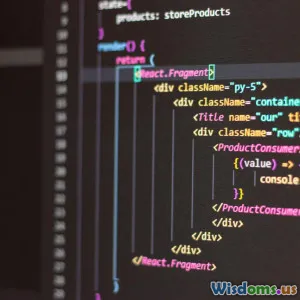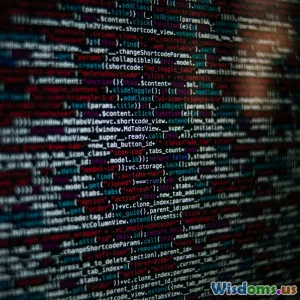
Exploring Quantum Computing Basics
5 min read Uncover the fundamentals of quantum computing, its principles, applications, and potential impact on technology. (0 Reviews)
Exploring Quantum Computing Basics
Quantum computing is an area of technology that merges the principles of quantum mechanics with computer science to create powerful computing systems. Unlike classical computers, which use bits as the smallest unit of data (0s and 1s), quantum computers utilize quantum bits, or qubits. This fundamental difference allows quantum computers to process information in ways that classical computers cannot, leading to unprecedented speed and efficiency in certain computations.
What is Quantum Computing?
At its core, quantum computing leverages the unique properties of quantum mechanics: superposition, entanglement, and interference. These properties allow qubits to exist in multiple states simultaneously, enabling quantum computers to perform complex calculations much more quickly than traditional systems.
Key Principles of Quantum Mechanics
-
Superposition: Unlike a classical bit, which can only be in one state at a time (0 or 1), a qubit can be in a state of 0, 1, or both 0 and 1 at the same time. This ability allows quantum computers to explore many solutions simultaneously.
-
Entanglement: Qubits can become entangled, meaning the state of one qubit is directly related to the state of another, regardless of the distance between them. This interdependence allows for faster and more efficient information processing.
-
Interference: Quantum algorithms utilize interference to amplify the probabilities of correct answers while canceling out the incorrect ones, enhancing the efficiency of computational processes.
How Quantum Computing Works
Quantum computers rely on complex algorithms designed specifically to exploit qubit behavior. Some well-known quantum algorithms include:
- Shor's Algorithm: This algorithm can factor large integers exponentially faster than the best-known classical algorithms, posing a potential threat to current encryption methods.
- Grover's Algorithm: It provides a quadratic speedup for unstructured search problems, making it significantly faster than classical approaches.
These algorithms demonstrate how quantum computing can tackle problems that are currently infeasible for classical computers, particularly in fields like cryptography, optimization, and drug discovery.
Applications of Quantum Computing
The applications of quantum computing span various industries and have the potential to revolutionize technology. Here are some notable areas where quantum computing is making an impact:
- Cryptography: Quantum computing could break traditional encryption methods, necessitating the development of quantum-resistant algorithms to protect sensitive data.
- Drug Discovery: By simulating molecular interactions at a quantum level, researchers can accelerate the discovery of new drugs and materials.
- Optimization Problems: Industries that rely on complex optimization, such as logistics and finance, can benefit from quantum algorithms that solve these problems more efficiently.
- Artificial Intelligence: Quantum computing can enhance machine learning algorithms, improving their capability to process vast amounts of data and find patterns.
Challenges and Future of Quantum Computing
Despite its potential, quantum computing also faces significant challenges. Issues such as qubit coherence, error rates, and scalability hinder the development of practical quantum computers. Researchers are actively exploring solutions, including error correction techniques and new qubit technologies.
The future of quantum computing holds exciting possibilities. As technology advances, we might see quantum computers becoming more accessible and integrated into everyday applications, leading to breakthroughs in various sectors.
Conclusion
Quantum computing represents a paradigm shift in technology and computing. Understanding its principles and potential applications is crucial for anyone interested in the future of technology. As we continue to explore this fascinating field, the implications of quantum computing will likely extend far beyond what we can currently imagine, paving the way for innovations that can transform our world.
Rate the Post
User Reviews
Popular Posts





















